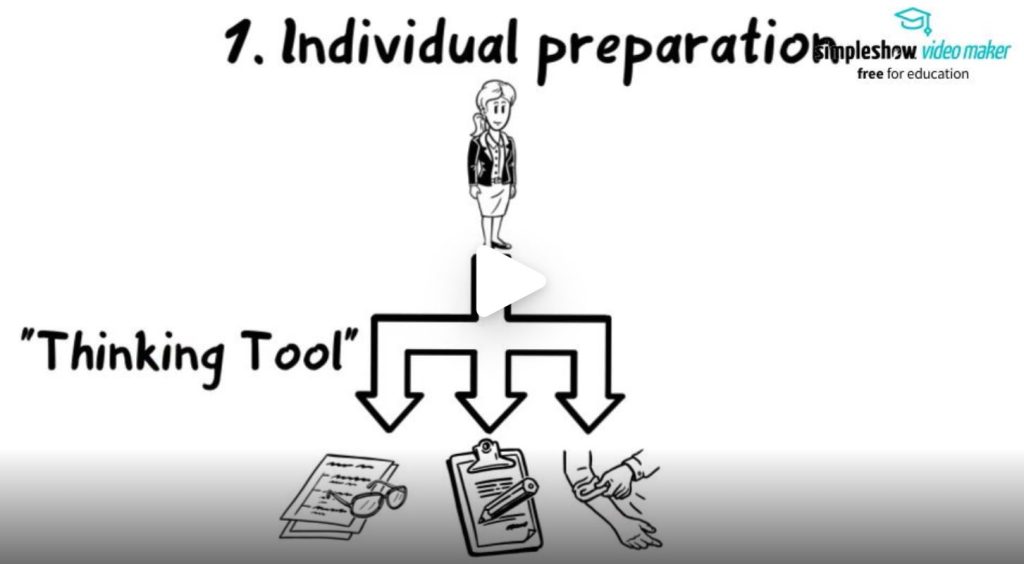Introduction to the idea
The challenge of communication in PLCs is to be respectful and open-minded while inquiring into both own and others’ beliefs about teaching and learning of their students. The modules in this deliverable will provide strategies for developing communication appropriate for participating in a student-teacher PLC and a student-teacher and mentors PLC.
The self-instructive modules are based on theory and research about what describes effective communication in PLC and what the partners have gained as knowledge from the HeadsUP project they brought out before.
Overview
Conversations in professional learning communities (PLC) brings a great potential for renewal of professional knowledge (Horn and Little, 2010). According to Earl and Timperley (2008), norms for communication, whether it is legitimate to challenge or criticize each other can function both as a promoter and inhibitor of professional learning. Said in another way, it is the quality of the conversations that matters, whether they are characterized by superficiality or go more in depth (Earl and Timperley, 2008). In conversations characterized by critical and challenging discourse, the participants’ practices and perceptions become visible and are the subject of testing (Helstad, 2015). Earl & Timperley (2008) distinguish between conversations characterized by strong and weak reflection. They say that strong forms of reflection are characterized by being challenged, where a balance between support and challenge is sought, and where the focus is on substantial issues, and an exploratory approach to practice. Weak forms of reflection, on the other hand, are characterized by a lack of problematizations of both content and context, as well as a superficial and consensual discourse. Weak reflections can be affirmative and socializing, but the conversations do not have to challenge the knowledge horizon (Earl & Timperley, 2008).
Intentions
The aim of these modules is for you to be more aware of how you communicate, and you can learn to become more effective in your problem-solving activities. This will in the next turn help to develop your PLC. Everything we do is largely exercised by dialogue, you must have confidence and skills to collaboratively solve problems of teaching and learning, which means engaging with others in productive and respectful conversations.
How to work with the modules

Individual preparation
Before attending the PLC meeting each participant prepares for the meeting by reading the instruction given at the start of the module and then following the instruction given in “individual pre-work” described in each of the three modules. The instruction describes “what to read”, “take notes”, and “what to practice”. What to read refers to a text called a “Thinking tool” that each participant must read. Take notes refers to what to note when reading the thinking tool. What to practice refers to the communication skill the participants decide to practice in the upcoming PLC meeting.
Working on the module in the PLC meeting
The PLC meeting is extended with a pre- and a -post session. In the pre-session the participants work with tasks described in “What to practice”. This consists of a discussion on the theme of the “Thinking tool”, a presentation of the skills each of the participants has decided to practice and the selection of an observer to observe the meeting and the communication in the meeting. The observer shall focus on the core elements of the thinking tool that everyone has read using the observation template that’s presented in the module.
After the pre-session the PLC meeting starts up, and is carried out in the usual way, and the observer uses the template to observe the meeting.
In the post-session each of the participants reflects for a few minutes on their own communication in the meeting. The observer gives his response to the whole group, and the group reflects in the feedback together.
The group decides whether they want to practice the module in more than one PLC meeting or not.

